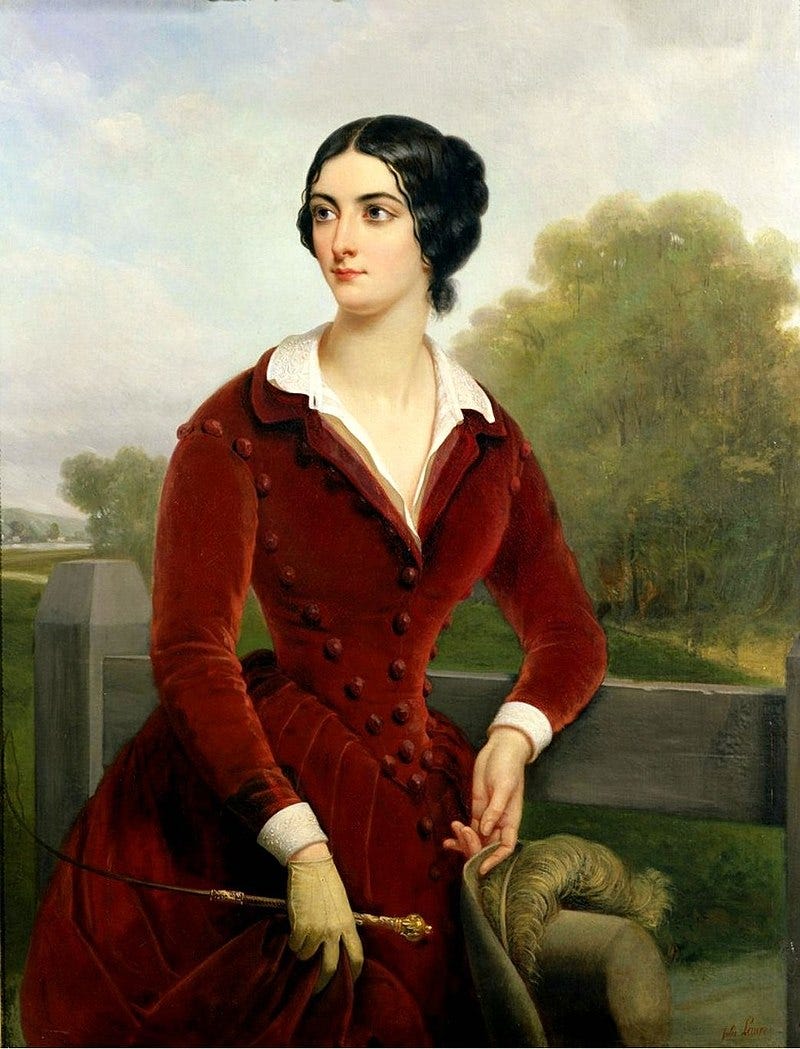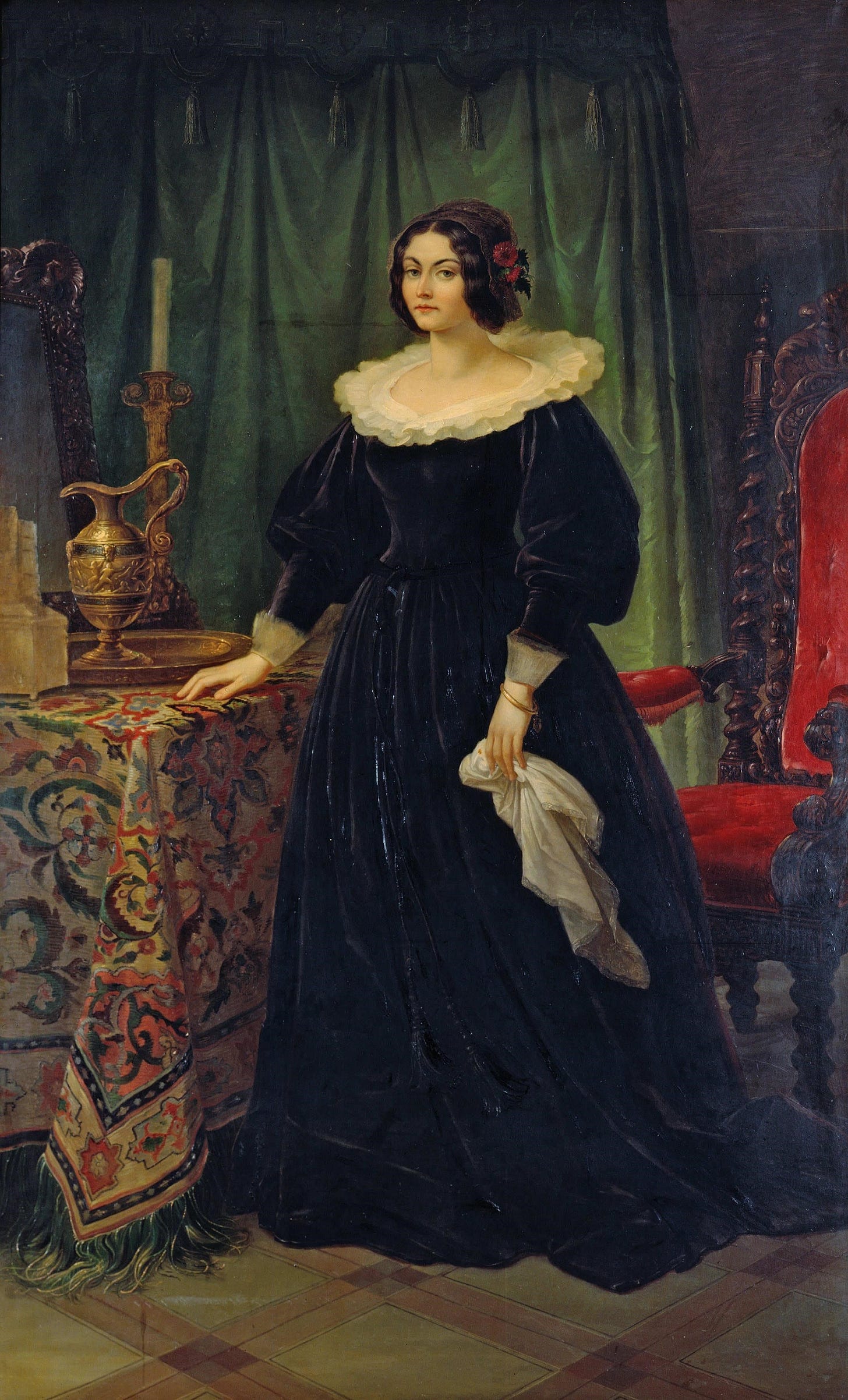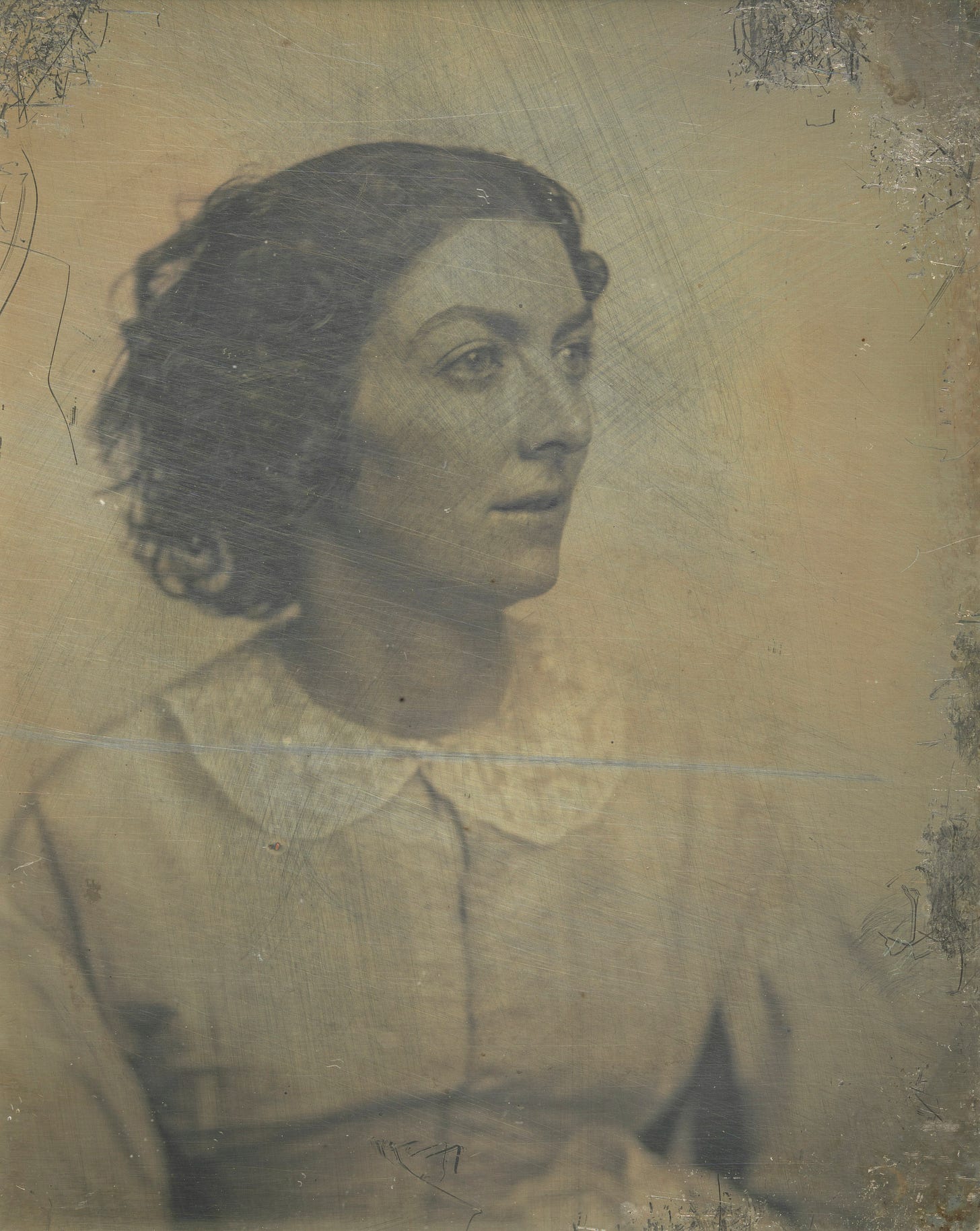The life of Lola Montez — the greatest global celebrity of the mid-19th Century — trafficked deeply in flamboyant inconsistency. Her personal fortunes swung from destitution to wealth and then back again. She was both kind and capricious. Sensible and dazzlingly self-indulgent. Tickle and slap.

Lola’s politics also swung like a pendulum. Among her most glorious moments were dancing for royalty on Europe’s most sumptuous stages. Yet Lola’s performances also sparked populist and nationalist riots that exposed the fragility of Europe’s ruling classes.
Was Lola a republican or a royalist? Both. Definitely. Her affair with liberal Parisian publisher Alexandre Dujarrier ended with his death in a duel in 1845 (and her testimony at the murder trial of his killer). By October 1846, she ended up in Munich to play her most famous role of all as the unruly object of Bavarian King Ludwig I’s disastrous obsession.
The relationship between Lola and Ludwig ended with his abdication from the throne in the tumultuous revolutionary year of 1848. Which is perhaps one reason that Lola Montez is so closely associated with revolution.

Yet Lola Montez’s own account of her life gleefully embraces all the contradictions of her biography set out above. In the lectures that she gave near the end of her life, she revels in her close encounters with kings, and princes and other elites. She also recounts their follies and their perfidies, and reminisces a smidge too fondly about the riots and public disturbances which her performances stirred up in cities like Warsaw.
Indeed, her autobiographical lectures lionize both Dujarrier and King Ludwig — whose politics were 180 degrees apart. First, Lola’s account of the Parisian publisher:
Dujarrier spent almost every hour he could spare from his editorial duties with Lola Montez, and in his society she rapidly ripened in politics, and became a good and confirmed hater of tyranny and oppression, in whatever shape it came.
She soon became familiar with the state of politics throughout Europe, and became so enthusiastic a Republican, that she, in her heart, almost sickened that she had not been made a man.
Compare this with her account of the crowned head of Bavaria:
I am compelled to say that a portion of the press of the United States has exhibited an astonishing ignorance of the character of this king. They have represented him as a weak, foolish, and unprincipled man, who sought only his own pleasure, regardless of the good of his people and the honor of his crown while he was precisely the reverse of all this. Not only was he one of the most learned, enlightened, and intellectual monarchs that Europe has had for a whole century, but he loved his people, and was, in the best political sense of it, a father to his country. During his reign Munich was raised from a third class to a first class capital in Europe. No monarch of a whole century did so much for the cause of religion and human liberty as he.

Indeed, the overall impression one receives from a close study of her own writing is that for Lola, all politics was personal. While this may appear egotistical or self-absorbed to the casual observer, it will not surprise anyone familiar with the journey of Lola Montez.
A plunge into a personal abyss created by her early and ill-starred marriage in 1837 led Eliza Gilbert to reinvent herself as Lola Montez. And to maintain the reality of that reinvention was not only essential, but existential. Anything that shook it or threatened it represented not only shame and ridicule, but personal annihilation.
Add in Lola’s unique and complex personality, driven by exigency and furious energy, and one can easily see why her politics were also changeable and mercurial, fluctuating with the temper of her time and circumstance.
Yet politics is a key strand woven into An Evening with Lola Montez. Not only was Lola Montez one of the first self fashioned celebrities on a global stage, she was also a political celebrity. A vessel into which competing parties of reaction and reform poured their immense public poisons and aspirations. No ordinary human being could hold them all. Even an extraordinary one wrestled unsuccessfully to do so.
That’s why, as Lola says in the play, her own point of intersection with powerful figures was not politics at all, but rather their own intense reaction to her alluring vivacity, her celebrity, and her art. As she says of her first meeting with Ludwig:
What meaningful discourse might a king and a dancer possibly share? You shall receive no indiscreet revelations tonight. But you can be placed safely in possession of the fact that it was beauty of which they spoke. The pure beauty of art.



